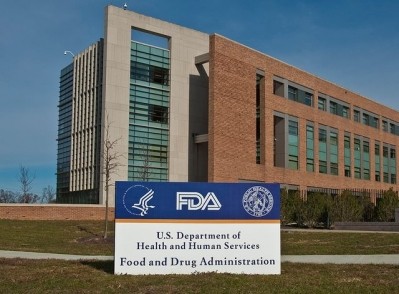Sen McCaskill calls for vinpocetine and picamilon supplements to be pulled from shelves

In a letter to Stephen Ostroff, FDA Acting Administrator, Sen McCaskill writes: “[T]he law governing dietary supplements prohibits the inclusion of synthesized ingredients like those found in prescription drugs. Because these ingredients [vinpocetine and picamilon] are sold as dietary supplements and not prescription drugs they have not undergone the same level of scrutiny to understand any potential side effects or drug interactions.
“In the interest of public safety, I request that FDA take all appropriate action to immediately cease the sale of dietary supplements containing these ingredients until it can be determined if they are appropriate for consumption as dietary supplements.”
Recent analysis
Sen McCaskill’s move was prompted by results of a recent analysis by researchers from the National Center for Natural Products Research at the University of Mississippi and Cambridge Health Alliance / Harvard Medical School published in Drug Testing and Analysis, which found that, of the 23 vinpocetine supplements tested, six (or 26% of the products tested) did not contain any vinpocetine, while 17 contained vinpocetine with quantities ranging from 0.3 to 32mg per recommended daily serving.
For the 31 picamilon supplements tested, 30 contained picamilon in quantities ranging from 2.7 to 721.5mg per recommended daily serving, with no picamilon detected in one supplement.
“These dosages range from trivial to prescription levels,” wrote the authors.
Vinpocetine
Vinpocetine, a compound positioned for brain health formulations, is derived from vincamine obtained from the lesser periwinkle plant (Vinca minor L.) and there is evidence to support its role as a vasodilator – or increasing blood flow to the brain. It’s being investigated as a drug in many countries but is not permitted as a pharmaceutical in the US, instead being sold as a supplement.
The American Herbal Products Association’s Botanical Safety Handbook (Second Edition, 2013) notes that there are no known side effects for Vinca minor L.
Vinpocetine is considered a new dietary ingredient (NDI) after the FDA acknowledged notifications in the late 1990s from Amrion Inc (1997), Leiner Health Products (1998 & 1999), GNC (1999), and Pharmavite (1999). Vinpocetine is used in over 350 supplement brands, according to the Natural Medicines Comprehensive Database.
However, in her letter to the FDA, Sen McCaskill writes: “This [1997 NDI] notification, which is required for all dietary supplement ingredients not on the market before 1994, seems to have met little scrutiny from FDA as to the product’s allegedly synthesized origins, as it has been on the US shelves for several years.
“To assist my understanding of the FDA’s role in allowing ingredients like vinpocetine […] to be labeled dietary supplements in the United States, I request that you provide copies of any New Dietary Ingredient materials submitted to FDA by manufacturers of supplements containing vinpocetine or picamilon, as well as any adverse event reports associated with either ingredient.
Picamilon
Picamilon (also known as nicotinoyl-GABA) was developed by the All-UnionVitamin Research Institute in the USSR in 1970. A search on PubMed (accessed Oct 2, 2015) for picamilon produces 49 results, with 39 of those being in Russian. A further five papers were published in Ukrainian.
No NDI has ever been submitted for picamilon, and the FDA told NutraIngredients-USA this week that the compound – a derivative of GABA (gamma-aminobutyric acid) and nicotinic acid that can cross the blood brain barrier – is not a dietary ingredient (the Agency also does not consider it an old dietary ingredient).
As such, dietary supplements containing picamilon are considered adulterated by the FDA.
Picamilon is not used in many products, mostly being listed in products positioned for the sports nutrition/ bodybuilding category. About 50 products currently list picamilon or pikatropin on their labels, according to the National Institutes of Health’s Dietary Supplement Label Database (accessed Oct 2, 2015).
McCaskill on brain health supplements
McCaskill opened an inquiry into brain health supplements this summer by sending letters to the FDA and 15 major retailers after launching an inquiry into products, regulations, and retailers in the dietary supplement industry that specifically market to seniors using claims about improving memory and treating dementia and Alzheimer’s disease.
The retailers were been asked about their policies relating to the sale and/or marketing of dietary supplements, and what they had done to prevent sales of harmful or fraudulently marketed products in their stores and on their websites and shows. The 15 retailers are Amazon, QVC, Walgreens, Home Shopping Network, Walmart, Target, CVS, Vitamin Shoppe, Safeway, eBay, Kroger, Vitamin World, GNC, Google, and Yahoo.
To read Sen McCaskill's letter about vinpocetine and picamilon, please click HERE.

















